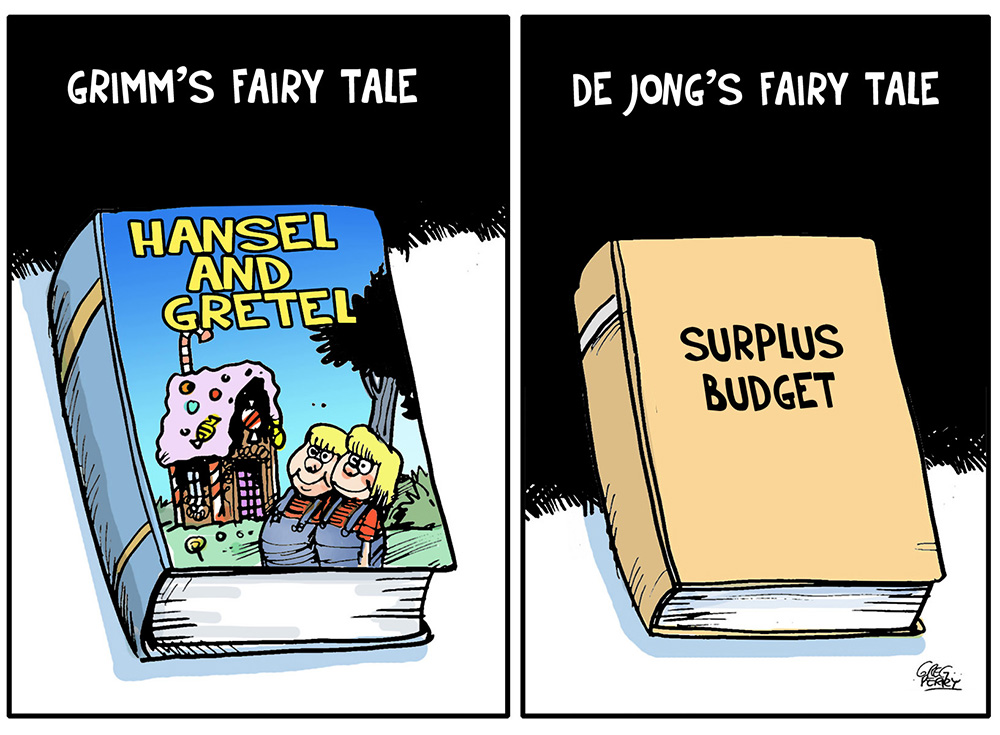Why didn’t Premier Christy Clark deliver an immediate cut in MSP premiums, some pundits have asked, and score political points before the May 9 election?
It’s an easy question to answer. If Clark had implemented the MSP reductions right away, the budget’s promised $295-million surplus for the coming fiscal year would have turned into a $555-million deficit — a disaster for a government that’s trying to convince voters of its good fiscal management.
By delaying the start of the reductions until Jan. 1 — nine months into the fiscal year — Clark got credit for the cut without facing too many questions about how we’ll pay for it.
The reckoning comes with next year’s budget, and it will be ugly. The post-election government is either going to have to bring in new taxes or cut services across almost all ministries.
The MSP reductions will reduce government revenue by about $850 million a year once they’re fully in place. Not huge, but more than four times the revenue from natural gas royalties.
By delaying the start until Jan. 1, nine months into the fiscal year, the Liberals cut the revenue loss in the coming year to about $210 million, as people will keep paying the same premiums until Dec. 31. That saved the balanced budget and left room for some pre-election spending and even new tax cuts for business. Nine of 21 ministries got more money in the budget.
But next fiscal year, the MSP cuts will be in place for the full 12 months, and the government — Liberal or NDP — will have to manage an $850-million revenue loss — about 1.7 per cent of the total money coming in.
The Liberals have set out their plans to deal with the loss in the budget documents, which include revenue and expense plans for the budgets coming next February and in 2019.
If re-elected, the Liberals plan to freeze or cut spending in 12 ministries in the next budget to help pay for the MSP reductions. Even the problem-plagued ministry of children and family development faces a funding cut in next year’s budget, and a freeze in 2019.
The Liberals plan on more cuts the following year, when 16 of 21 ministries will have reduced or frozen budgets — most for the second year in a row. In fact, only the health ministry gets a significant funding increase that year. Across all the other ministries — $18 billion worth of spending — the total increase in the next Liberal budget is forecast at $41 million.
Yet the budget projects population increases of more than one per cent a year, and two-per-cent inflation. School enrolments are rising, Boomers are aging, government salaries are increasing.
In short, demand and costs are increasing while the Liberal government is arbitrarily cutting budgets. (Fourteen of 21 ministries, including the premier’s office, have the same budgets for 2019 as 2018. That’s copy-and-paste budgeting, not serious planning.)
You could argue we deserve this kind of con for not paying enough attention, or for failing to punish parties when they say one thing during an election campaign and do something radically different once in power. They’ve learned that it’s OK to focus on getting elected and shuffle problems into the future. If they aren’t re-elected, someone else has to deliver the bad news and deal with the fallout.
A serious government would have had a plan to replace some of the revenue lost to MSP reductions. The main objection to the premiums was that they were a regressive tax. One solution would have been to increase income taxes enough to cover at least some of the $850 million. That would have protected services while shifting to a more progressive tax, with those with higher incomes paying a larger share.
Remember, this is the government that maintained it was too expensive to provide smaller classes in schools (until the Supreme Court of Canada forced it to). It’s the government that has left disabled citizens in poverty and has not increased income assistance rates for almost a decade. A family of three on income assistance, with two parents facing “persistent multiple barriers to employment,” to use the government’s term, is expected to live on $1,206 a month, with a maximum of $660 for housing for two parents and a child.
Increasing income assistance rates by $25 a week — which would be a tiny step toward lifting thousands of children out of grim poverty — would cost about $90 million a year. Too costly right now, the government has said for more than nine years.
But that’s barely 10 per cent of the revenue the government has decided to abandon with its flawed MSP plan.
Clever, in a cynical kind of way. Pushing the cuts into the future means the Liberals scored political points without having to explain what they will cut in the next budget to make up for the lost revenue. If they win the election, they’ll just feign surprise at the situation. If the New Democrats win, that party will be left to make cuts, raise taxes or run a deficit, all unpleasant for a new government.
The government could have reduced or eliminated MSP premiums and replaced them with fairer taxes, at the least to maintain services and ideally to strengthen communities and families, especially the most vulnerable. Instead, it chose campaigning over government.
That kind of cleverness should be punished, not rewarded. ![]()
Read more: BC Election 2017, BC Politics

















Tyee Commenting Guidelines
Comments that violate guidelines risk being deleted, and violations may result in a temporary or permanent user ban. Maintain the spirit of good conversation to stay in the discussion.
*Please note The Tyee is not a forum for spreading misinformation about COVID-19, denying its existence or minimizing its risk to public health.
Do:
Do not: